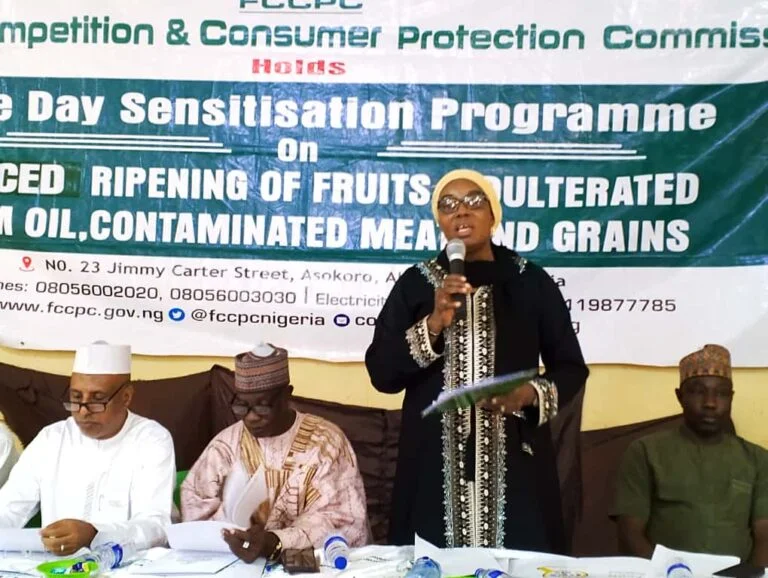The Federal Competition and Consumer Protection Commission (FCCPC) has warned those in the food value chain against unwholesome practices that endanger public health
The Executive Vice Chairman of the commission, Mr Olatunji Bello, gave the warning on Tuesday at a one-day sensitisation campaign on “Food Quality Standards, Safety Regulations, and Fair Business Practices”, organised by the commission in Kano State.
Bello, represented by the Director of Quality Assurance and Development, Dr Nkechi Mba, said the campaign is aimed at raising awareness on the dangers of food adulteration and the importance of compliance with national food safety laws.
He said that food safety was a collective responsibility for all involved, from farmers to vendors and consumers.
He said the campaign was part of the commission’s broader effort to educate Nigerians on identifying adulterated foods, the dangers of chemically ripened fruits and channels for lodging complaints and seeking redress.
According to him, access to safe, nutritious and unadulterated food remained a fundamental human right and a key pillar of public health and national security.
Bello explained that the commission was collaborating with sister agencies like the National Agency for Food and Drug Administration and Control (NAFDAC), the Standards Organisation of Nigeria (SON), among others to ensure compliance and protect consumers.
He urged food processors, vendors and business owners to uphold hygiene and safety standards, ensure proper labelling and packaging of food products, and desist from deceptive or unfair business practices.
He warned that any business operator that prioritised profit over public safety would face the full weight of the law and called on consumers to be vigilant and report cases of food adulteration or unsafe practices.
“Food safety is everyone’s responsibility, and the FCCPC remains committed to building a fair, transparent and safe marketplace for consumers,”he said.
He urged all stakeholders to work collectively to eliminate harmful food practices and promote a culture of accountability and responsibility in the food sector.
“A nation that poisons its people cannot prosper. We are all consumers — an injury to one is an injury to all. Together, we can build a healthier and safer Nigeria,” Bello stated.



